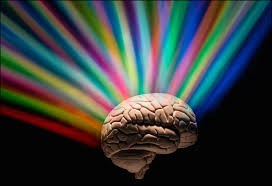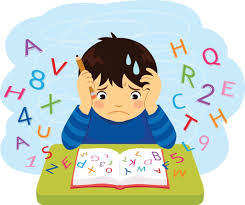Bipolar disorder is a mental illness that affects both men and women, but it often manifests differently in each gender. Men with bipolar disorder are more likely to experience anger and aggression. Women are more likely to experience depression and anxiety. Family members and loved ones of men with bipolar disorder should be able to recognize the symptoms. If they see these symptoms, they should get the person’s help. In this article, we will discuss the symptoms of bipolar disorder in men, as well as how to get help.
Contents
- 1 What Is Bipolar Disorder?
- 1.1 Symptoms Of Bipolar Disorder In Men
- 1.2 Causes Of Bipolar Disorder In Men
- 1.3 Risk Factors Of Bipolar Disorder
- 1.4 Why Is Bipolar Disorder Different In Men And Women?
- 1.5 Facts On Bipolar Disorder
- 1.6 Negative Impact Of Bipolar Disorder In Men
- 1.7 How Is Bipolar Disorder Diagnosed In Men?
- 1.8 How Is Bipolar Disorder Treated?
- 1.9 Helping A Friend Or Family Member With Bipolar Disorder
- 2 Conclusion
- 3 A Word From Therapy Mantra
What Is Bipolar Disorder?

Bipolar disorder is a mental health condition that causes extreme mood swings. These mood swings can range from feeling very high and happy to feeling very low and sad. There are two types of bipolar disorder: bipolar I and bipolar II.
Bipolar I means that people have “high” episodes. They feel very good and have a lot of energy. They may also be irritable, have problems sleeping, and have racing thoughts. With bipolar II, people experience episodes of hypomania, which is a less severe form of mania.
People with bipolar disorder also often experience periods of depression. During these times, they may feel very sad, have no energy, and lose interest in activities they once enjoyed.
Symptoms Of Bipolar Disorder In Men

There are some symptoms of bipolar disorder that are unique to men. These include:
- Becoming angry or irritable more easily than usual: Men with bipolar disorder may become angry or irritable more easily than usual. They may also have a shorter temper than they used to.
- Becoming more sexually active: Men with bipolar disorder may become more sexually active than usual, which can lead to risky behaviors.
- Having problems focusing: During manic episodes, men with bipolar disorder may have trouble focusing on anything for very long. This can make it hard to do tasks at work or school.
- Drinking alcohol or using drugs: Some men with bipolar disorder use alcohol or drugs as a way to self-medicate their symptoms. This can lead to addiction and other health problems.
- Acting impulsively or making reckless decisions: Men with bipolar disorder may act impulsively or make reckless decisions, such as spending a lot of money on things they don’t need or driving too fast.
- Feeling restless and being unable to sit still: Men with bipolar disorder may feel restless and unable to sit still. This can be a problem if they need to stay in one place for a long time, such as at work or during an exam.
- Suicidal thoughts or behaviors: It’s not just women who experience suicidal thoughts and behaviors. Men with bipolar disorder are also at risk for suicide.
- Experiencing a decline in productivity at work or school: Men with bipolar disorder may find that their performance at work or school declines during manic episodes.
Causes Of Bipolar Disorder In Men
There is no one cause of the bipolar disorder. Instead, it’s thought to be caused by a combination of genetics and the environment.
- Genetics: It’s believed that bipolar disorder is passed down from parents to their children. If one or both of your parents have bipolar disorder, you are more likely to develop it yourself.
- Environment: Some people think that the environment can also play a role in causing bipolar disorder. Things like stress, abuse, and traumatic events may trigger the illness.
Risk Factors Of Bipolar Disorder
There are some things that may increase a man’s risk of developing bipolar disorder. These include:
- Having a mental health condition like anxiety or depression: Men who have other mental health conditions are more likely to develop bipolar disorder.
- Using alcohol or drugs: Using alcohol or drugs can increase the risk of developing bipolar disorder.
- Being exposed to stress: Stressful events, such as abuse or trauma, can trigger bipolar disorder in men.
- Getting older: The risk of developing the bipolar disorder increases as men get older.
Why Is Bipolar Disorder Different In Men And Women?

There is still a lot that we don’t know about bipolar disorder. One of the things that are still unclear is why it affects men and women differently.
Some experts believe that it has to do with hormones. Men may be more likely to develop bipolar disorder because of their testosterone levels. Others think that the way men and women experience stress may be different. This could explain why women are more likely to experience symptoms like depression, while men are more likely to experience symptoms like mania.
Facts On Bipolar Disorder
- Bipolar disorder affects men and women differently
- The cause of bipolar disorder is not fully understood, but it is thought to be a combination of genetics and environmental factors
- Some things that may increase a man’s risk of developing bipolar disorder include having a mental health condition like anxiety or depression, using alcohol or drugs, being exposed to stress, and getting older
- Men with bipolar disorder are at risk for suicide.
There is still much we do not know about bipolar disorder. One thing that is clear, however, is that the illness affects men and women differently.
Negative Impact Of Bipolar Disorder In Men
Bipolar disorder can have a negative impact on every area of a man’s life. This includes his relationships, work or school performance, and physical health.
Relationships

Men with bipolar disorder may have difficulty maintaining healthy relationships. They may become irritable and argumentative during manic episodes, which can lead to fights and strained relationships.
Work or School Performance

Men with bipolar disorder may find that their performance at work or school declines during manic episodes. They may be more likely to take risks, which can lead to mistakes and poor productivity.
Physical Health
Bipolar disorder can also have a negative impact on men’s physical health. Also, men with the illness are more likely to experience problems like obesity, heart disease, and diabetes.
How Is Bipolar Disorder Diagnosed In Men?
Bipolar disorder can be difficult to diagnose because the symptoms can be similar to other mental health conditions.
Your doctor will likely do a physical exam and ask about your medical history. They may also give you a psychiatric evaluation, which includes questions about your moods, thoughts, and behavior.
Hence, there is no one test for bipolar disorder. Instead, your doctor will use their best judgment to make a diagnosis.
How Is Bipolar Disorder Treated?
There is no one-size-fits-all treatment for bipolar disorder. Treatment will vary depending on the person’s needs.
However, there are some treatments that are commonly used to treat bipolar disorder in men. These include:
- Medication: Medication is often a key part of treatment for bipolar disorder. There are many different types of medications that can be used, and your doctor will work with you to find the best medication for you.
- Therapy: Therapy can be helpful in managing bipolar disorder. It can provide support and teach coping skills.
- Self-care: Taking care of yourself is an important part of managing bipolar disorder. This includes things like getting enough sleep, eating healthy foods, and exercising.
Medicines For Bipolar Disorder In Men

There are many different types of medications that treat bipolar disorder. Your doctor will work with you to find the best medication for you. Some of the most common types of medications include:
- Mood stabilizers: Mood stabilizers are the most common type of medication used to treat bipolar disorder. They help to control mood swings and keep your moods stable.
- Antipsychotics: Antipsychotics are medications that help to control psychotic symptoms, like hallucinations or delusions.
- Anti-depressants: Anti-depressants can be helpful in treating depression symptoms associated with bipolar disorder.
- Anti-anxiety medications: Anti-anxiety medications can be helpful in treating anxiety symptoms associated with bipolar disorder.
Therapy For Bipolar Disorder In Men

Therapy can be an important part of treatment for bipolar disorder. It can provide support and teach coping skills. Some types of therapy that may be helpful include:
- Cognitive-behavioral therapy: Cognitive-behavioral therapy helps you learn to change the way you think and behave. This can help you manage your bipolar disorder better.
- Interpersonal and social rhythm therapy: Interpersonal and social rhythm therapy helps you stabilize your daily routines, including sleep, eating, and work habits. This can help reduce stress and improve moods.
- Family-focused therapy: Family-focused therapy helps families understand bipolar disorder and how to best support their loved ones.
Self-care For Bipolar Disorder In Men

Taking care of yourself is an important part of managing bipolar disorder. This includes things like getting enough sleep, eating healthy foods, and exercising. Some tips for self-care include:
- Get enough sleep: Getting enough sleep is essential for good mental health. Try to get at least seven hours of sleep each night.
- Eat healthy foods: Eating healthy foods can help improve your moods and energy levels. Avoid sugary foods and processed snacks.
- Exercise regularly: Exercise releases endorphins, which can improve your moods and overall well-being. Try to exercise for 30 minutes each day.
Helping A Friend Or Family Member With Bipolar Disorder

If you have a friend or family member who has been diagnosed with bipolar disorder, there are some things that you can do to help them.
- First, try to learn as much as you can about bipolar disorder. This will help you understand what your loved one is going through.
- Second, offer support and understanding. Bipolar disorder can be a difficult condition to live with, and your loved ones will appreciate knowing that you are there for them.
- Third, make sure that they are getting the treatment they need. If they are not seeing a doctor or taking medication, encourage them to do so.
- Fourth, avoid criticizing or judging them. Bipolar disorder is not a choice and only willpower cannot treat it.
- Finally, reach out for help if you are feeling overwhelmed or stressed. There are many resources available to help caregivers of people with bipolar disorder.
Conclusion
Bipolar disorder is a mental illness that affects men and women differently. Bipolar disorder in men often goes unrecognized because the symptoms are different than those seen in women. Hence, there are three types of bipolar disorder: bipolar I, bipolar II, and cyclothymic disorder. Bipolar I is characterized by manic episodes and depressive episodes. Bipolar II is characterized by hypomanic episodes (a less severe form of mania) and depressive episodes. The cyclothymic disorder has fewer or shorter mania and depression episodes but lasts for at least two years. Bipolar disorder is caused by a combination of genetic and environmental factors. The cause of the bipolar disorder is unknown. Moreover, medication, therapy, and self-care can treat bipolar disorder successfully. There are many resources available for caregivers of people with bipolar disorder.
Hence, if you or someone you know is struggling with bipolar disorder, please seek help. Therefore, there is no shame in getting help for mental illness. Mental illnesses are real and treatable. You are not alone.
A Word From Therapy Mantra
Your mental health — Your psychological, emotional, and social well-being — has an impact on every aspect of your life. Positive mental health essentially allows you to effectively deal with life’s everyday challenges.
At TherapyMantra, we have a team of therapists who provide affordable online therapy to assist you with issues such as depression, anxiety, stress, workplace Issues, addiction, relationship, OCD, LGBTQ, and PTSD. You can book a free therapy or download our free Android or iOS app.


